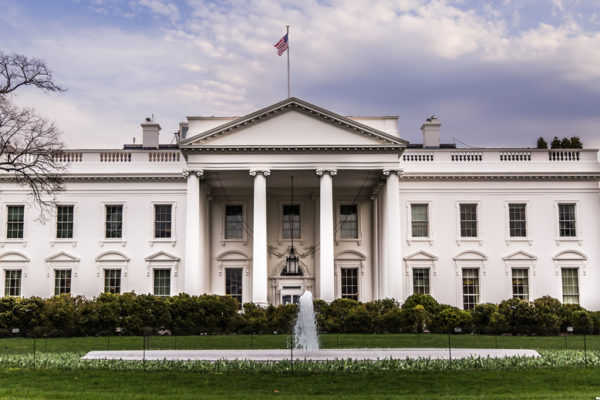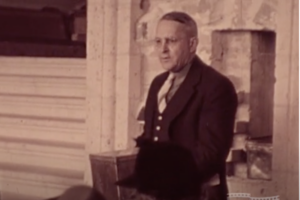Speaking recently at his now daily briefing about the COVID-19 crisis, President Donald Trump declared that “[t]he president of the United States calls the shots” with regard to the so-called reopening of the American economy. Governors, he asserted, “can’t do anything without the approval of the president of the United States.” He did not cite any specific provisions of the Constitution.
Perhaps more relevantly, he also failed to mention any specific delegations of power by Congress that would entitle him to override decisions by state governors to keep most of their populations and, therefore, most of the economy on lockdown. Instead, he simply stated, “When somebody’s the president of the United States, the authority is total.”
One is tempted to dismiss such statements as another demonstration of sheer ignorance on his part. Still, throughout our history presidents have often made what appeared at the time to be astonishing claims about their authority to act, particularly in times of emergency. A standard source for such assertions is Abraham Lincoln, but there are many other examples.
And not all have been successful. The Supreme Court sharply rebuffed Harry Truman’s effort to seize the American steel industry in 1951 to guarantee continued production of war materiel for troops fighting in Korea. More recently, Supreme Court decisions have also rejected extravagant claims of presidents to “total” authority.
Ironically, Trump’s assertion might have been more credible had he suggested that he would countermand the irresponsible policies adopted by a variety of governors (all Republican) who have resolutely refused to adopt rigorous policies of social distancing and isolation. The most flamboyant is the governor of South Dakota who has resisted such policies. Now, America’s pork supply is apparently threatened by a shutdown of a large slaughterhouse in Sioux Falls because of the hundreds of workers who have tested positive for the virus.
In any event, Congress has authorized the president to order individuals’ “apprehension [or] detention . … for the purpose of preventing the introduction, transmission, or spread of [a] communicable disease.” It would not be much of a reach to define “detention” as including an order simply to remain within the confines of one’s home.
Upon issuing an executive order, the Centers for Disease Control and Prevention has power to oversee its implementation. So it would be unproblematic if the president did issue an executive order overriding current more-relaxed policies in states such as South Dakota, Arkansas, and perhaps even Texas, because that would help “prevent” the further “spread” of COVID-19.
That, however, is not what is at issue. Trump instead claimed the right, based on no articulated authority, to override various governors throughout the country who are doing their best to save their residents’ lives. He also seems to be asserting his authority simply to disregard whatever advice he is receiving from the CDC itself.
Even while straining not to publicly oppose a notably loyalty-seeking president, epidemiologists are lending almost no support to the idea of reopening in the near future America’s restaurants, movie theaters, sports venues and department stores.
A fundamental reality of the American national government is that it does possess extremely wide powers, especially in times of emergencies. “The Constitution,” Justice Robert Jackson wrote in 1949, “is not a suicide pact,” and it is a perhaps irresistible temptation to grant to the government (and maybe, on occasion, presidents) whatever powers they believe necessary to prevent national suicide.
But even in such extreme situations, Congress is expected to take the lead by delegating powers to the executive branch. Even a liberal justice during the 1930s criticized the New Deal Congress for engaging in “delegation run riot.” Since then, however, conservative justices have agreed that modern government requires extensive delegation that almost undoubtedly would have shocked Americans living even 100 years ago, when the national government exercised remarkably less authority than it does now.
In the absence of such delegation, it is both mistaken and dangerous for presidents casually to assert the powers claimed by Trump. As many people across the political spectrum have noted, we revolted in 1776 against a king, and we certainly did not mean to replace him with a dictator, even an elected one.
Sanford Levinson holds the W. St. John Garwood and W. St. John Garwood, Jr. Centennial Chair in Law at The University of Texas at Austin.
A version of this op-ed appeared in the Corpus Christi Caller Times and the Abilene Reporter News.




